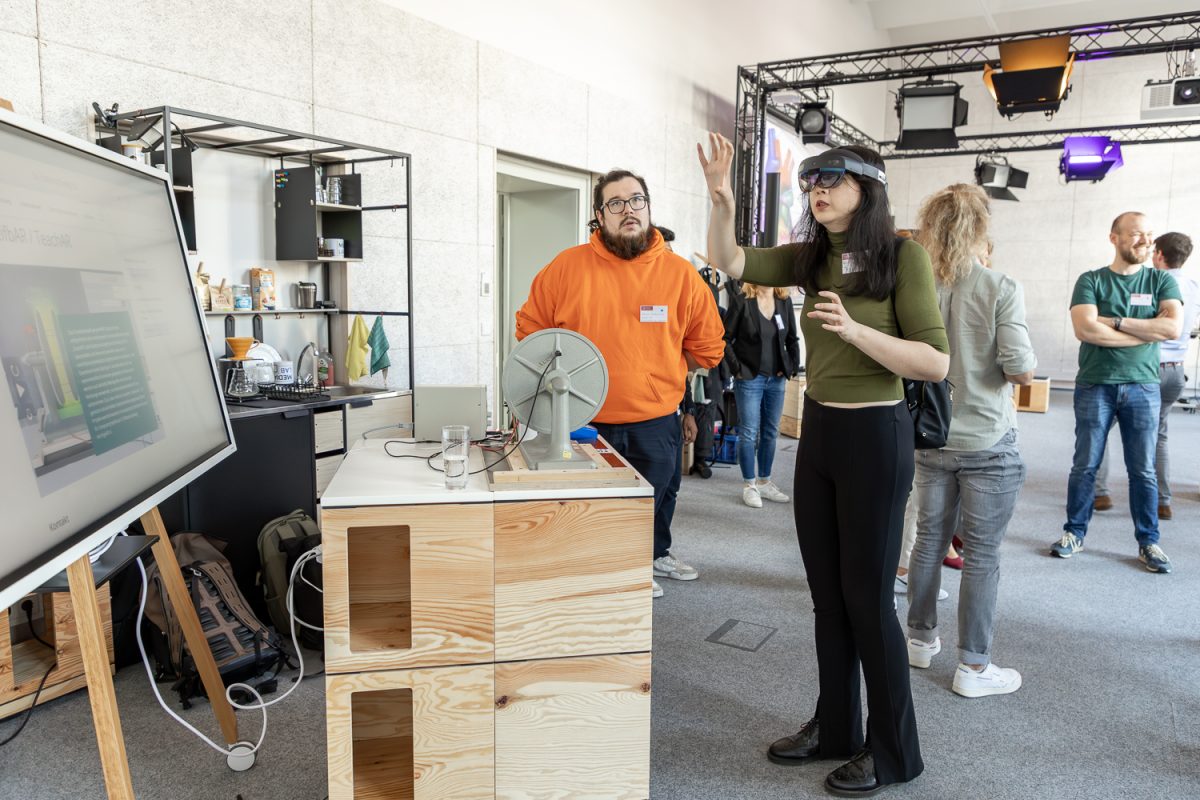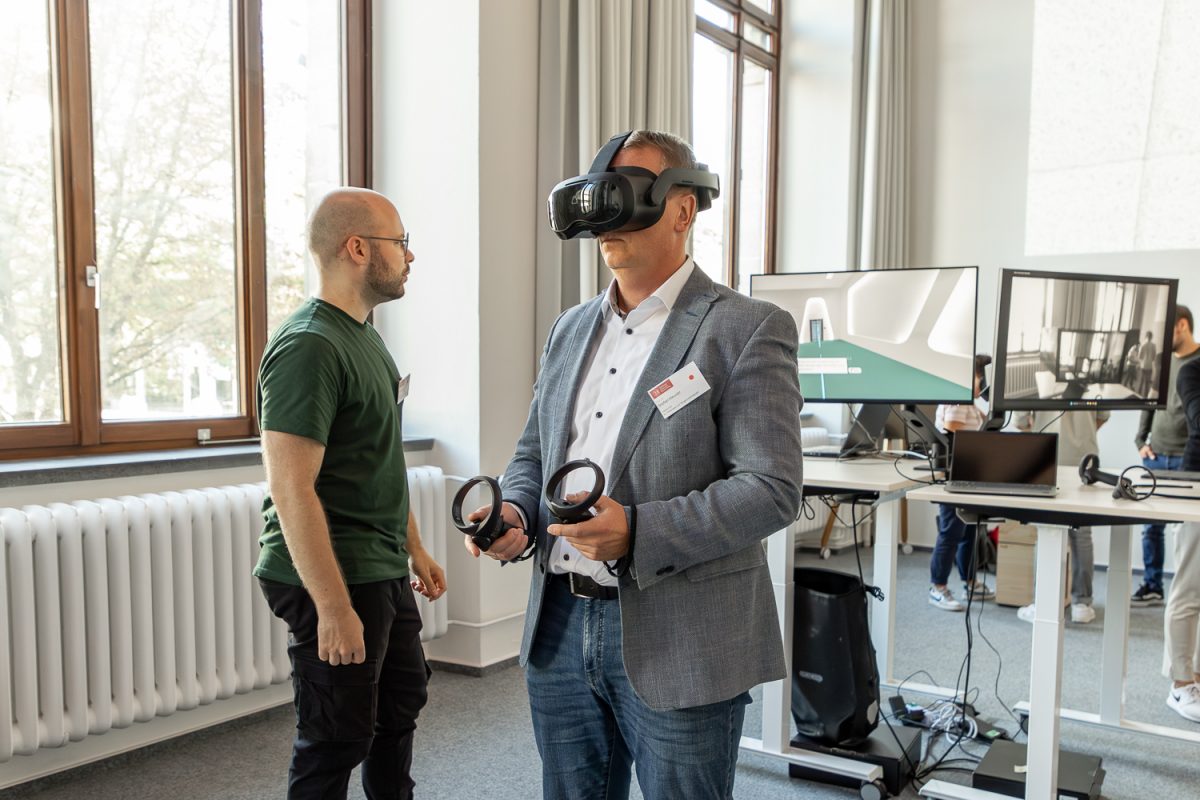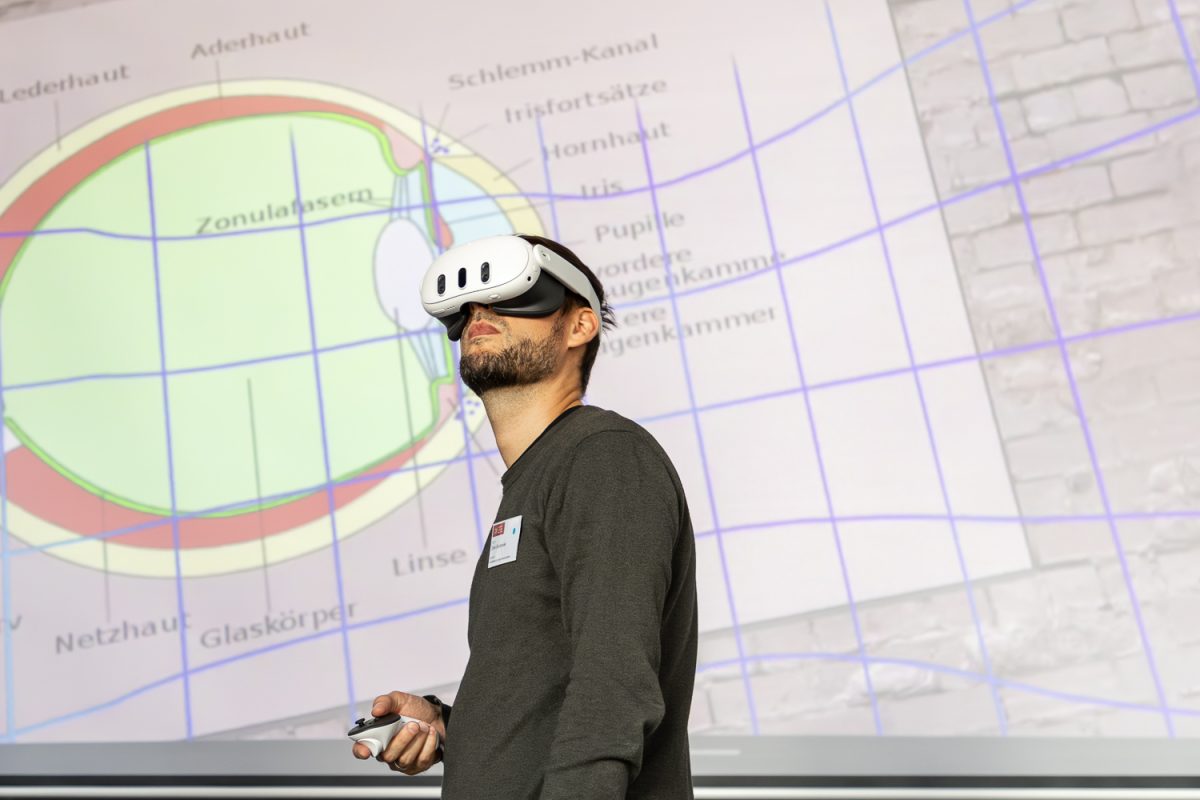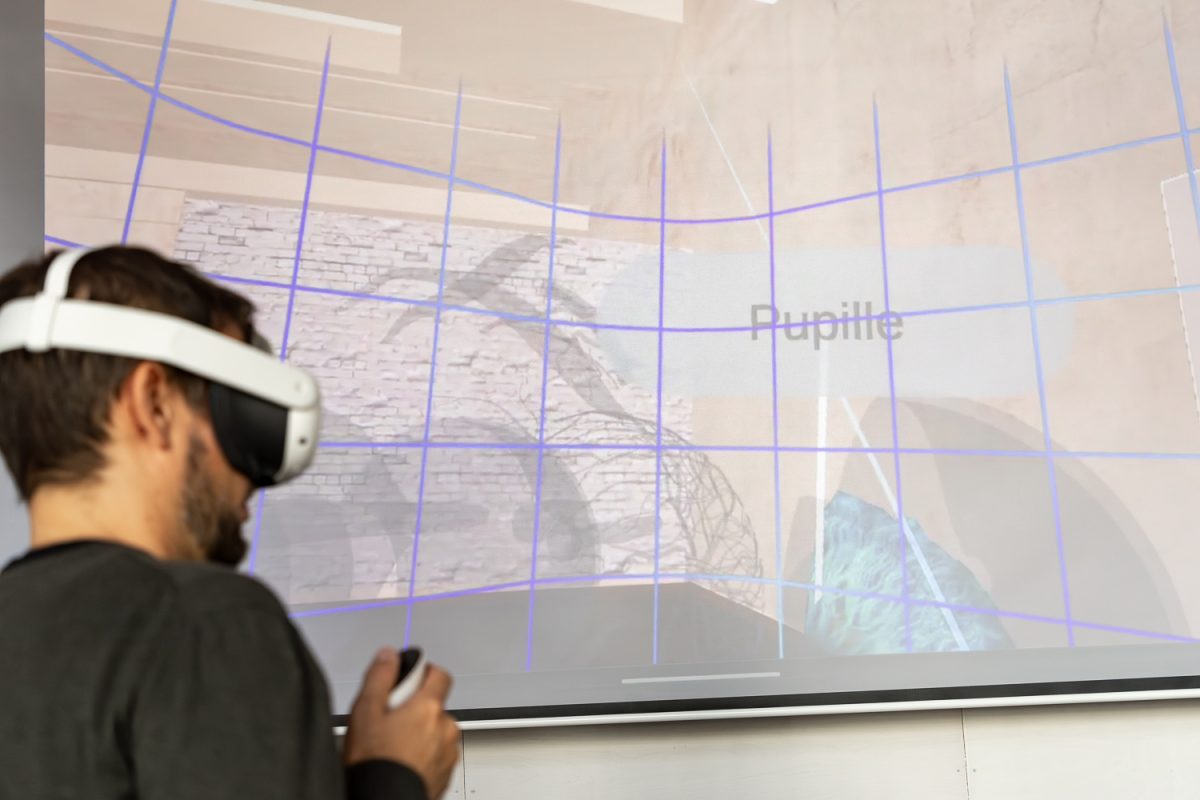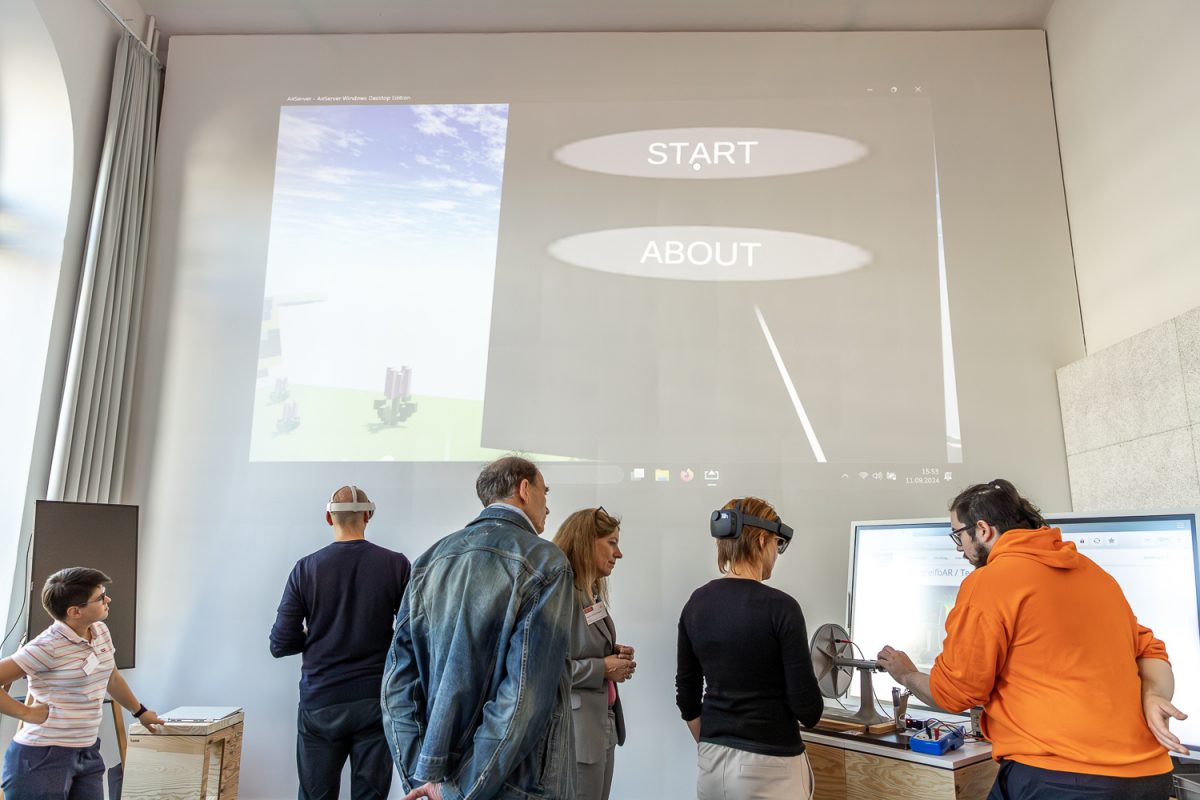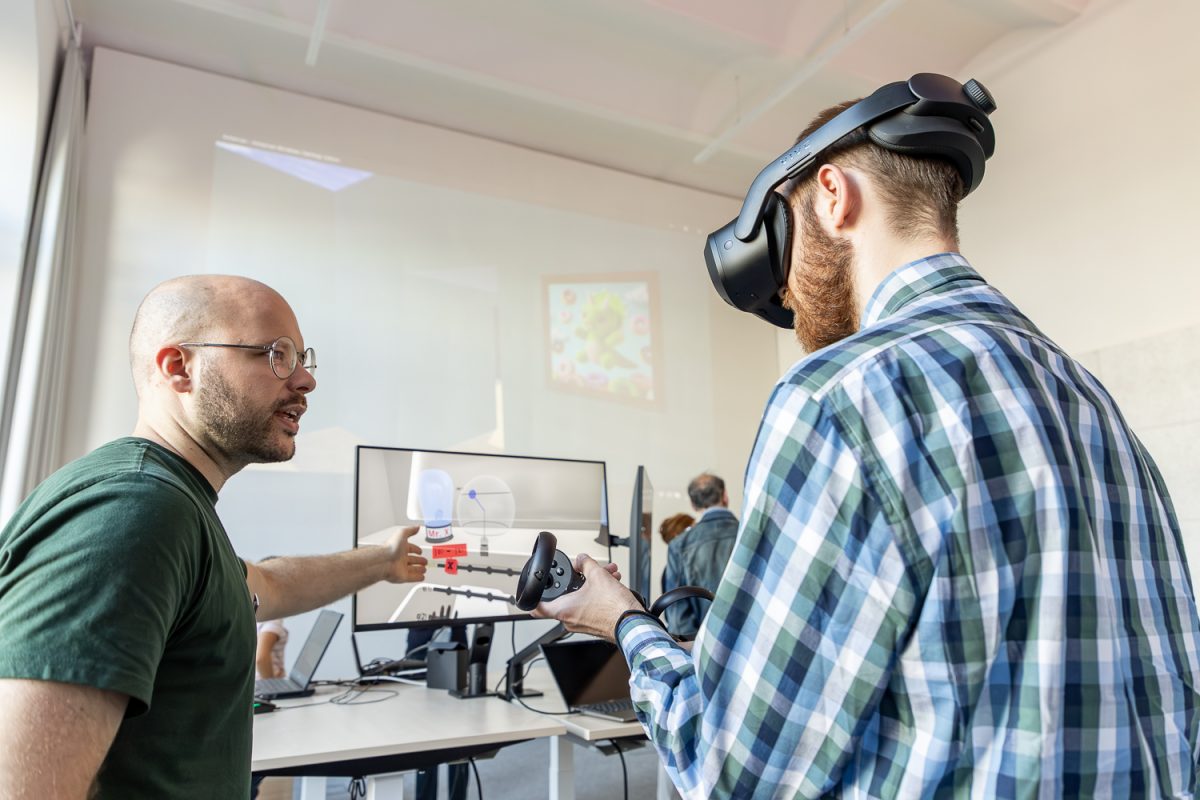Extending reality in education Interdisciplinary project on Extended Reality launched
MR, VR, AR – these Extended Reality (XR) technologies are becoming increasingly important. They are used to support complex work contexts and enable immersion in digital worlds. The technologies are already being used in healthcare, industry, entertainment and tourism. In the project ‘Interdisciplinary Perspectives on Extended Reality in Education’ (INTERXR), scientists from all faculties of Technische Universität Braunschweig are investigating how the potential of XR can be used in education and what challenges exist. Interested parties from all faculties were invited to the kick-off workshop.
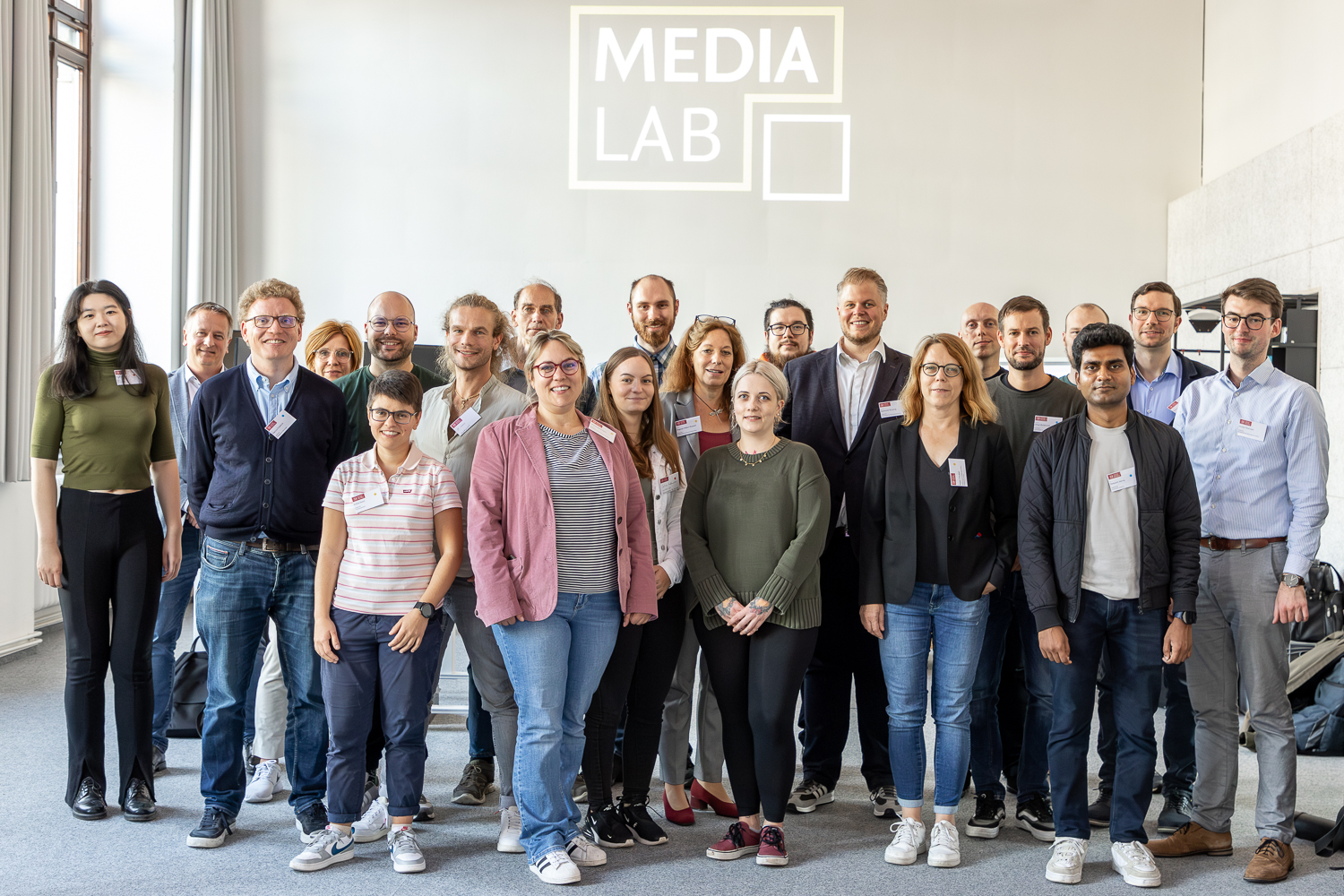
Interested parties from all faculties were invited to the kick-off workshop of the INTERXR project. Photo credits: Kristina Rottig/TU Braunschweig
The term ‘Extended Reality’ (XR) encompasses both Mixed Reality (MR) and Virtual Reality (VR) technologies. It describes all technologies that allow an extension of reality (MR) or even access to completely new virtual environments (VR). They differ mainly in the relationship between the real and virtual worlds. The term Augmented Reality (AR), which belongs to Mixed Reality, is also often used in this context. In this case, digital devices such as smartphones, tablets or AR glasses are used to blend virtual objects into reality and to interact with them. The boundaries between reality and simulation are blurred.
Visualisation of complex phenomena
“XR technologies also open up new possibilities for educational processes. These technologies have great potential, especially in the area of visualising complex or abstract phenomena,” says Dr. Dagmar Hilfert-Rüpell, co-spokesperson for the INTERXR project at the Institute for Science Education. For example, physical processes – such as electric fields – can be made visible with XR, making these difficult concepts much easier to understand.
Another application is architecture. Students can explore and interact with three-dimensional models in virtual environments, a method already used at the Institute for Sustainable Urbanism (ISU), led by Professor Vanessa Carlow. This approach leads to a better spatial understanding of structures and provides a deeper insight into the construction and functionality of buildings.
Similarly, XR technologies can be used effectively in biology classes. “With immersive virtual reality, for example, 360° videos can be used to authentically experience natural phenomena that would otherwise be difficult or impossible to access,” says Alexander Büssing, Professor of Biology Education and co-spokesperson for the INTERXR project. “For example, exploring coral reefs or tropical rainforests can be realistically experienced through VR without having to be there.” It is also helpful in teaching and learning situations: “This goes hand in hand with the great advantage of being able to individualise learning processes and thus better respond to the individual support needs of learners.”
In which learning processes does XR actually offer advantages?
As described above, XR technologies offer a wide range of possibilities, but a scientific evaluation is needed to determine in which learning processes these technologies actually offer advantages. Therefore, in the INTERXR project, researchers from all faculties are investigating the possibilities and limitations from the perspective of their different disciplines, discussing and investigating: What new didactic and methodological concepts are needed to convey content in a way that is appropriate for the target group and to promote interaction between media, teachers and learners? What ethical considerations need to be taken into account when using such technologies? How can the visibility of the topic and the actors at TU Braunschweig be promoted?
Professor Büssing also admits that there is still a lot of development work to be done from a technical point of view in order to further develop the possibilities of the technology: “Another problem is the many different manufacturers with different app stores, so that certain decisions for future use are already made when the hardware is purchased, even if some of them are not yet foreseeable.”
Further information:
The INTERXR project has been selected by the Presidential Board of TU Braunschweig for funding under the ‘Funding Line 3: New Horizons’ as a research impulse. The funding will enable the development of a larger project proposal, in which the topic of extended realities can be investigated on a larger scale in research and teaching.
All those interested in the topic are invited to contact the steering group and to attend the final conference on 25-26 September 2025. Information will be published soon on the project website: www.interxr.de

